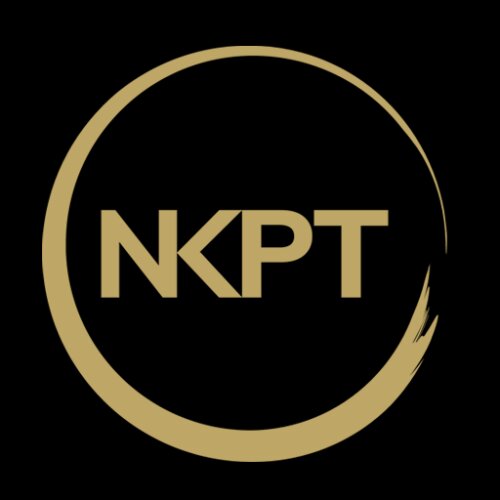Best Corporate Governance Lawyers in Malaysia
Share your needs with us, get contacted by law firms.
Free. Takes 2 min.
Or refine your search by selecting a city:
List of the best lawyers in Malaysia
About Corporate Governance Law in Malaysia
Corporate Governance in Malaysia refers to the framework of rules, practices, and processes by which companies are directed and controlled. It concerns the relationships among a company’s management, its board, shareholders, and other stakeholders. Good corporate governance ensures accountability, transparency, and integrity in the way companies operate, helping to build investor confidence and promote economic development. In Malaysia, corporate governance is guided by statutory regulations and best practice recommendations set out by government bodies and regulators. The landscape has evolved significantly over the years to meet international standards and improve the oversight of companies, especially those listed on Bursa Malaysia.
Why You May Need a Lawyer
There are various circumstances where engaging a lawyer with expertise in corporate governance is beneficial. Businesses may face complex regulatory requirements when setting up in Malaysia or looking to list their shares. Disagreements among shareholders or directors, issues relating to conflicts of interest, and non-compliance with statutory obligations often require legal intervention. Lawyers also assist in drafting and reviewing corporate documents such as memoranda of association, articles of association, board resolutions, and policies on risk management and ethics. If allegations of misconduct, breaches of fiduciary duty, or corporate fraud arise, legal advice is crucial for both individuals and corporate entities to understand their rights and liabilities.
Local Laws Overview
Corporate governance laws in Malaysia are mainly governed by the Companies Act 2016, the Capital Markets and Services Act 2007, and regulations set by Bursa Malaysia, the Malaysian Code on Corporate Governance (MCCG), and guidelines issued by the Securities Commission Malaysia (SC). The Companies Act 2016 modernizes company law, laying down detailed director responsibilities, disclosure and reporting requirements, and procedures for meetings and resolutions. The MCCG provides principles and practices for effective governance, especially for listed companies, with an emphasis on board leadership, stakeholder engagement, integrity in corporate reporting, and risk management. Compliance is monitored through statutory filings and periodic reporting, with enforcement led by the Companies Commission of Malaysia (SSM) and the SC.
Frequently Asked Questions
What is the Malaysian Code on Corporate Governance (MCCG)?
The MCCG is a set of principles and best practices for directors and companies to follow in order to strengthen corporate governance. It promotes accountability, transparency, and ethical business conduct, and is regularly updated to reflect changing regulatory and market expectations.
Are private companies subject to corporate governance requirements?
Yes, all companies registered in Malaysia must comply with the Companies Act 2016, but additional governance requirements and recommendations mainly target public and listed companies. Private companies are encouraged to adopt best practices voluntarily.
What are the key responsibilities of company directors in Malaysia?
Directors must act in good faith, in the best interests of the company, and exercise reasonable care, skill, and diligence. They are responsible for upholding statutory obligations such as keeping proper records, making accurate disclosures, and avoiding conflicts of interest.
What are the consequences of failing to comply with corporate governance laws?
Non-compliance can lead to penalties including fines, disqualification of directors, civil liabilities, and in severe cases, criminal prosecution. Poor corporate governance can also damage business reputation and investor confidence.
How are shareholders’ rights protected under Malaysian law?
Shareholders are protected through provisions relating to meetings, voting rights, the right to receive information, and mechanisms to bring legal actions if directors engage in misconduct or if their interests are prejudiced.
Is it compulsory to have an audit committee or other board committees?
For listed companies, having an audit committee is mandatory under Bursa Malaysia’s Listing Requirements. Other board committees such as nomination or remuneration committees are recommended to enhance governance structures, especially for larger companies.
What role does the Companies Commission of Malaysia (SSM) play in corporate governance?
SSM is the regulatory authority overseeing company incorporation, monitoring compliance with the Companies Act, and maintaining corporate records. It can conduct investigations and enforce penalties for breaches.
What is required for a company to comply with the MCCG?
Listed companies are required to disclose how they apply the MCCG’s principles in their annual reports and explain any deviations. While compliance is not mandatory, adherence is considered a sign of good corporate citizenship.
How can companies manage conflicts of interest at the board level?
Companies should have clear policies to identify and manage potential conflicts. Directors must declare their interests and, where appropriate, abstain from decision making in situations where conflicts arise.
Can foreign directors serve on Malaysian company boards?
Yes, foreign individuals can be appointed as directors of Malaysian companies, subject to compliance with statutory requirements such as having at least one director who is ordinarily resident in Malaysia.
Additional Resources
There are several resources and organizations available to support those seeking more information on corporate governance in Malaysia. The Companies Commission of Malaysia (SSM) is the main registry and regulator of companies. The Securities Commission Malaysia (SC) oversees capital market regulations including Bursa Malaysia-listed entities. The Malaysian Institute of Corporate Governance (MICG) promotes best practices through training and publications. For legal texts, the Companies Act 2016 and the Malaysian Code on Corporate Governance are essential references. Professional associations such as the Malaysian Institute of Accountants (MIA) and the Malaysian Bar can provide further guidance and contacts for legal assistance.
Next Steps
If you have concerns about corporate governance or need legal advice tailored to your situation in Malaysia, consider the following steps:
- Gather all relevant corporate documents, records, and correspondence. - Identify the specific governance issue or compliance requirement you need help with. - Contact a lawyer or law firm with experience in corporate governance and Malaysian company law. - Schedule an initial consultation to discuss your needs and the possible legal avenues. - Stay informed about changes in corporate laws by following updates from SSM, SC, and other regulatory bodies.
Taking these steps can help ensure that your company remains compliant and well-governed, and safeguarding your interests, whether you are a shareholder, director, or other stakeholder.
Lawzana helps you find the best lawyers and law firms in Malaysia through a curated and pre-screened list of qualified legal professionals. Our platform offers rankings and detailed profiles of attorneys and law firms, allowing you to compare based on practice areas, including Corporate Governance, experience, and client feedback.
Each profile includes a description of the firm's areas of practice, client reviews, team members and partners, year of establishment, spoken languages, office locations, contact information, social media presence, and any published articles or resources. Most firms on our platform speak English and are experienced in both local and international legal matters.
Get a quote from top-rated law firms in Malaysia — quickly, securely, and without unnecessary hassle.
Disclaimer:
The information provided on this page is for general informational purposes only and does not constitute legal advice. While we strive to ensure the accuracy and relevance of the content, legal information may change over time, and interpretations of the law can vary. You should always consult with a qualified legal professional for advice specific to your situation.
We disclaim all liability for actions taken or not taken based on the content of this page. If you believe any information is incorrect or outdated, please contact us, and we will review and update it where appropriate.
Browse corporate governance law firms by city in Malaysia
Refine your search by selecting a city.















